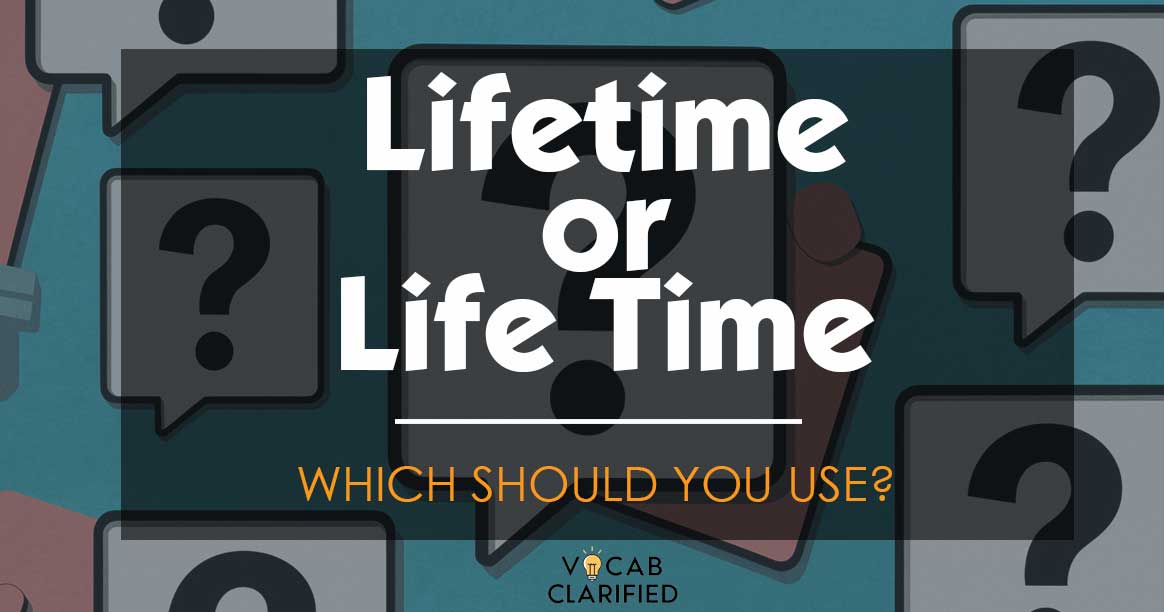Imagine you’re reading an advertisement that offers a “lifetime warranty.” Then you see another reference to a “life time experience.” The question arises: are both expressions correct, or is one a mistake?
This post will dive into the difference between lifetime and life time, and when it’s appropriate to use each.
Understanding Lifetime And Life Time
Lifetime: Definition and Usage
Lifetime is a compound word that refers to the duration of an individual’s life or the duration something lasts, such as a service or a warranty.
For example:
- “She had a lifetime of unforgettable adventures.”
- “The warranty is valid for a lifetime.”
In most cases, lifetime is used to describe the span of someone’s life or the longevity of something over an extended period, particularly until the end of its life cycle.
Life Time: Definition and Usage
Life time, when used as two separate words, is much less common and typically seen in specialized contexts.
It may refer to the time within a person’s life when a specific event or moment occurs.
For instance:
- “That was a life time achievement for her.”
- “We spent a life time waiting for the results.”
While some people might use life time informally, it is typically considered incorrect when describing something meant to last the entire life of a person or object.
Instead, lifetime is the correct term in most cases.
Side-by-Side Comparison
| Aspect | Lifetime | Life Time |
| Definition | Refers to the duration of someone’s life or the longevity of something (e.g., warranty) | Refers to a moment or period in someone’s life |
| Common Usage | “She achieved her lifetime dream.” | “It was a life time achievement, rare and special.” |
| Key Differences | Compound word used for extended timeframes | Two-word phrase referring to an event or short timeframe |
When to Use Lifetime or Life Time
- Use lifetime when referring to the entire span of a life or the duration of something over time. For example, when talking about warranties, experiences, or achievements that last until death or until the end of an object’s useful life.
- Use life time in rare cases when you’re referring to a specific moment or period in someone’s life, but note that this usage is less common and often considered incorrect by many language purists.
Everyday Usage Examples
Here are some examples of how lifetime and life time fit into everyday language:
- “He received a lifetime achievement award for his contributions.”
- “The product comes with a lifetime guarantee.”
- “This is a once-in-a-lifetime opportunity.”
- “They spent a life time on that project.”
- “She made a life time commitment to her goals.”
- “That moment was a life time memory for us.”
Conclusion
In conclusion, while lifetime and life time might seem similar, their usage differs.
Lifetime is the correct term for most situations, referring to the duration of a person’s life or the longevity of an object or service. Life time is rarely used and typically references a specific moment within someone’s life, but lifetime is almost always the preferred option in modern writing.

